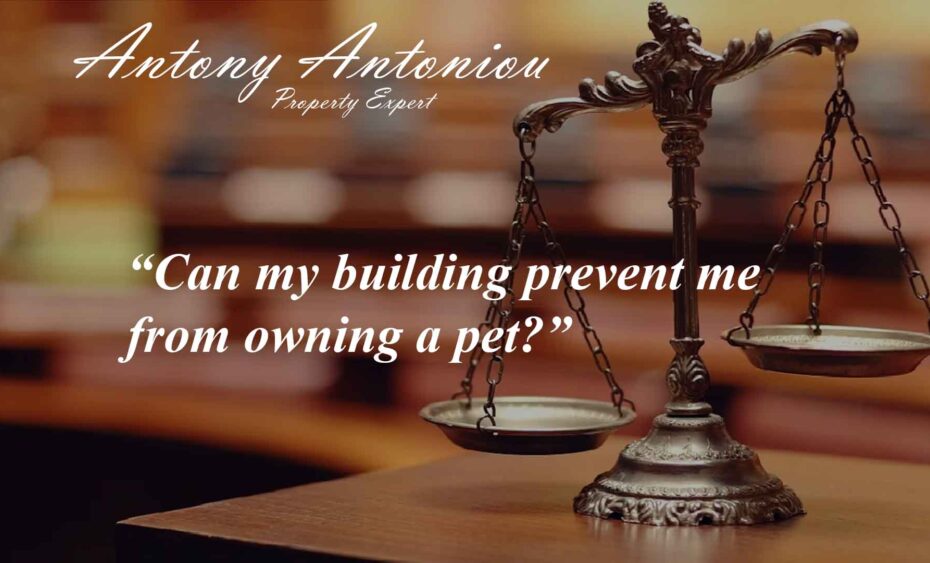“Can my building prevent me from owning a pet?”
Q. I reside in a converted Georgian building and serve as one of the five directors on the management company’s board, which holds the freehold. Currently, we are facing a disagreement among the directors concerning pet ownership.
According to our lease agreement:
“No pets of any kind, including dogs, cats, caged birds, reptiles, domestic or non-domestic animals, shall be kept within the Flat, Garage, or any part of the estate without obtaining prior written consent from the landlord.”
Although the board acknowledges that the clause allows for discretion, the majority of directors are opposed to having pets on the estate. They intend to notify shareholders that “this Board will not grant any future consent for pet ownership.” I disagree with this proposal, but I anticipate being outvoted.
Could you please clarify whether the board has the authority to make such a statement when the lease appears to grant discretion? If not, are there legal guidelines for justifying the refusal of permission for pet ownership?
A. This is a sensitive and contentious area. As is typical with provisions in leases and other legal documents that require someone’s consent, it is implied that the consent cannot be unreasonably withheld. This means that each case must be evaluated on its individual merits.
In theory, as long as it is made clear that each case will be assessed in this manner, it might not necessarily be illegal for the board to establish a written policy stating a general presumption against allowing pets. However, since each case must be dealt with separately, I don’t believe there would be much benefit to such a policy, and I would advise against it.
Moreover, one can see that while it might be reasonable to withhold consent for keeping a Great Dane in a small flat, the situation would be quite different if we were discussing a goldfish!
Regarding the factors to consider when evaluating a specific pet ownership application, it is essential to keep in mind the purpose of requiring consent for pets.
Clearly, the reason behind this requirement is that some pets can cause disturbances in terms of noise and damage to the shared areas. These risks should be foremost in your minds while reviewing these applications.
For instance, in a case I have been involved in, permission was granted on the condition that the leaseholder agrees to cover any damage caused by the pet and provides a £5,000 deposit to cover potential damage claims.
Please note: This is a summary of information referenced from property professionals and is not legal advice.

